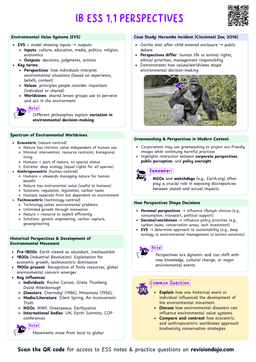Eco-Economic Decoupling
Eco-economic decoupling
Eco-economic decoupling refers to the process of separating economic growth from environmental degradation.
- It aims to ensure that economies can continue to grow while minimizing negative environmental impacts, such as pollution, resource depletion, and biodiversity loss.
- The concept plays a crucial role in sustainable development, as it challenges the traditional view that economic expansion must always lead to increased environmental harm.
Types of Decoupling
Absolute Decoupling
- Absolute decoupling occurs when economic growth continues while environmental impacts decrease in absolute terms (e.g., lower CO₂ emissions, reduced resource use).
- Challenges: Achieving absolute decoupling is difficult because continuous growth usually demands more raw materials and energy.
Some Scandinavian countries, such as Sweden, have managed to reduce their carbon emissions while maintaining economic growth by shifting to renewable energy sources and implementing strict environmental regulations.
Relative Decoupling
Relative decoupling happens when economic growth outpaces environmental degradation, meaning environmental harm still occurs, but at a slower rate than economic expansion.
China’s industrial sector has achieved relative decoupling in some areas by increasing energy efficiency, yet total CO₂ emissions continue to rise because of overall economic expansion.
The Debate on Decoupling
Possibility of Absolute Decoupling
Some optimists argue that technological advancements (e.g., circular economy, clean energy, carbon capture) could make absolute decoupling possible.
The European Union’s Green Deal aims for absolute decoupling by transitioning to a carbon-neutral economy through renewable energy and carbon pricing.
Limits to Decoupling
Critics argue that infinite economic growth is incompatible with finite planetary resources (e.g., water, minerals, fossil fuels).
The Jevons Paradox suggests that increased efficiency in resource use can lead to greater overall consumption, making absolute decoupling difficult.
Balancing Growth and Sustainability
- Circular Economy: Shifting from a linear "take-make-waste" economy to a system that emphasizes recycling, reuse, and reduced waste can help achieve decoupling.
- Green Technologies: Investment in renewable energy, electric vehicles, and sustainable agriculture can support growth without increasing environmental harm.
- Policy Measures: Governments can implement carbon taxes, emissions trading schemes, and green subsidies to promote decoupling.


